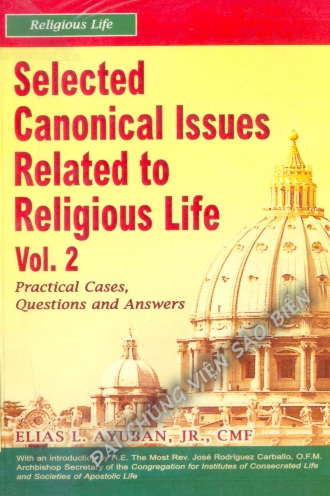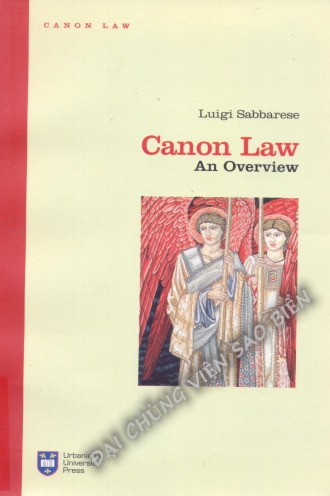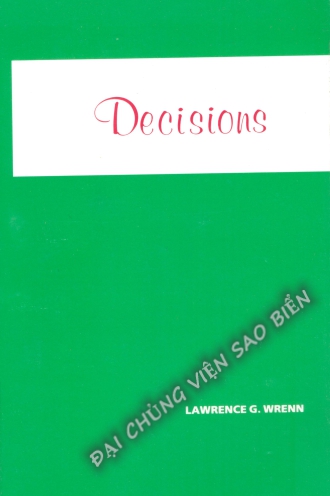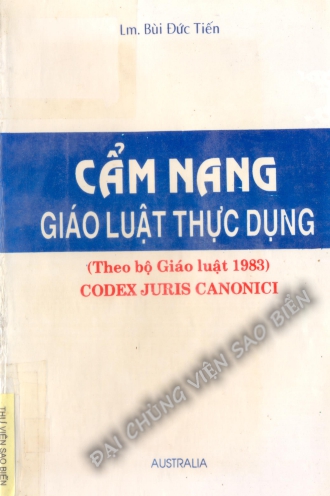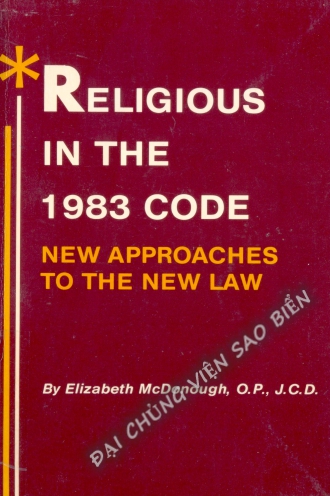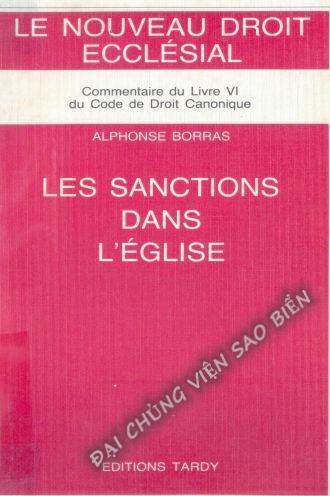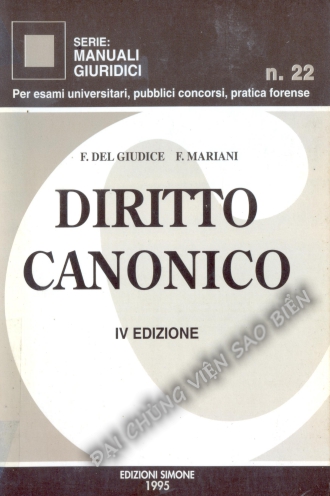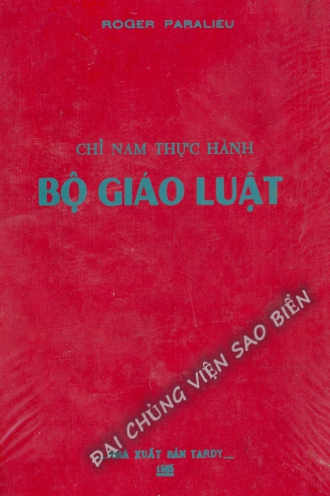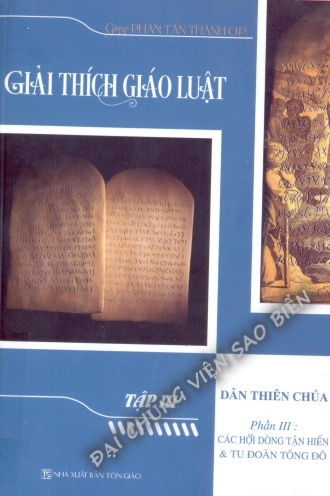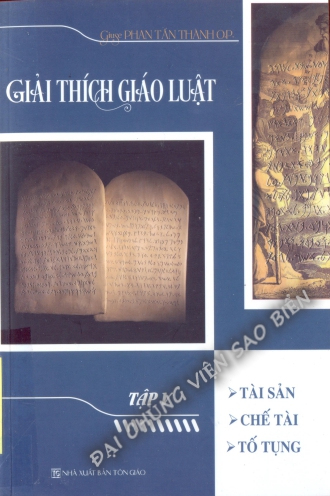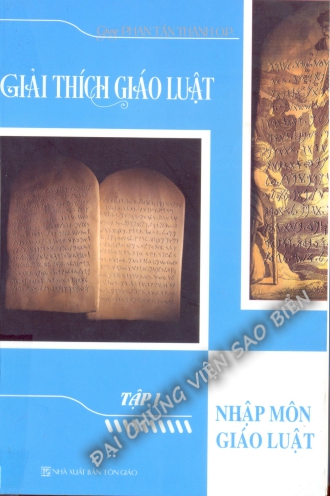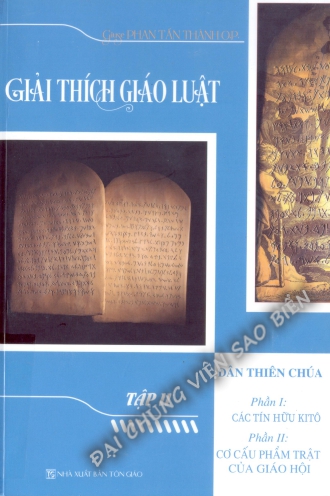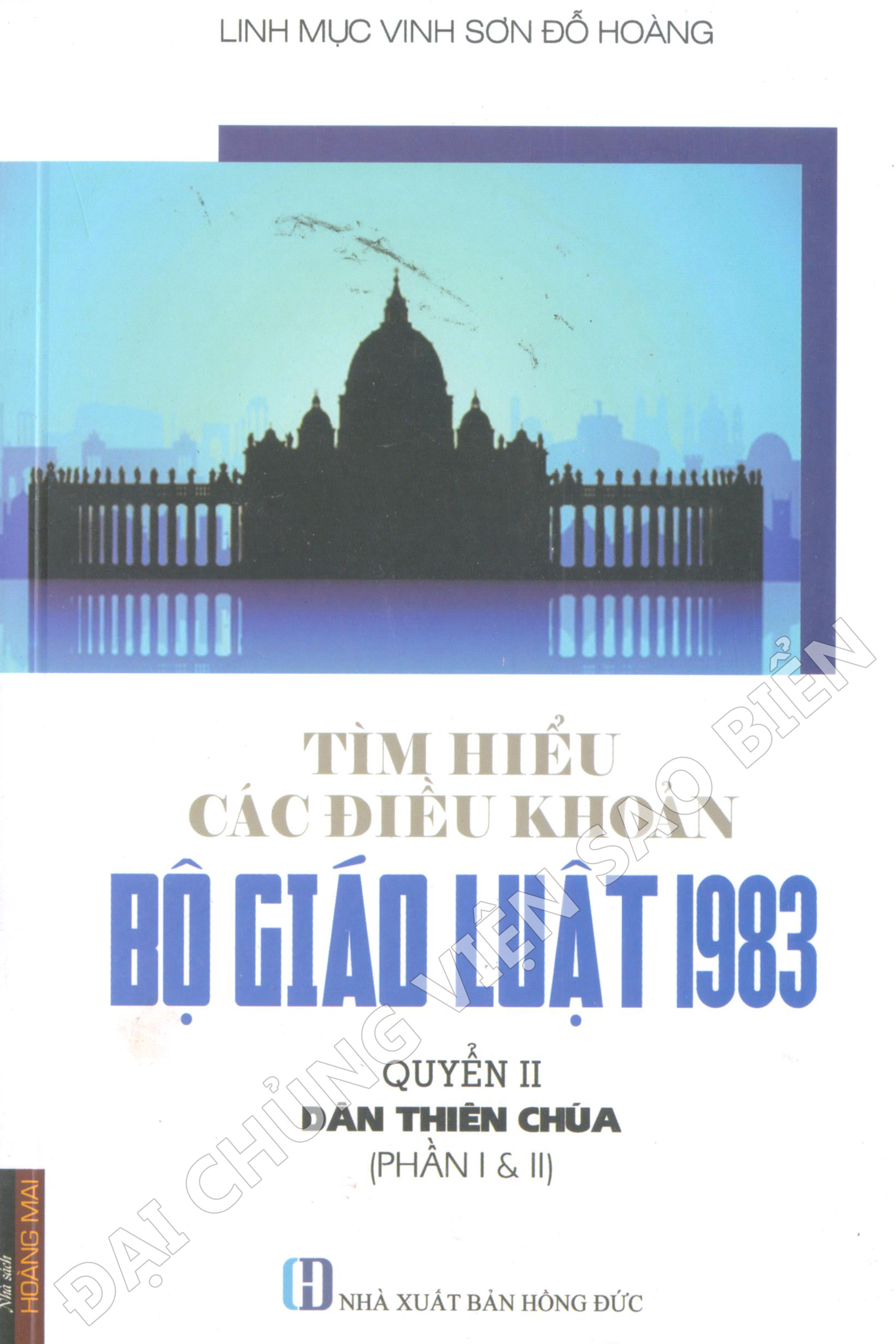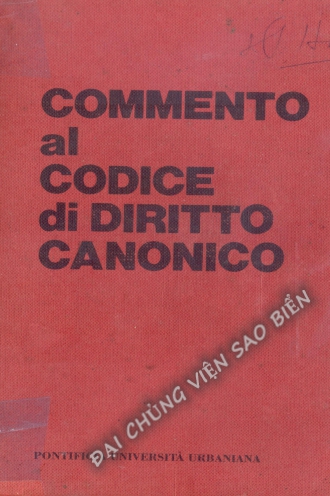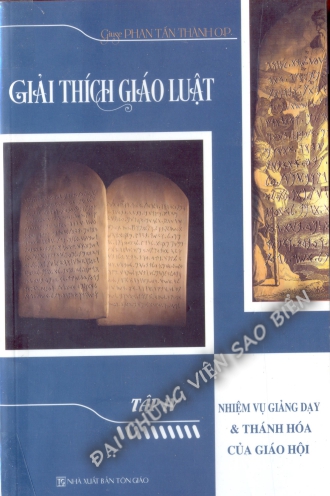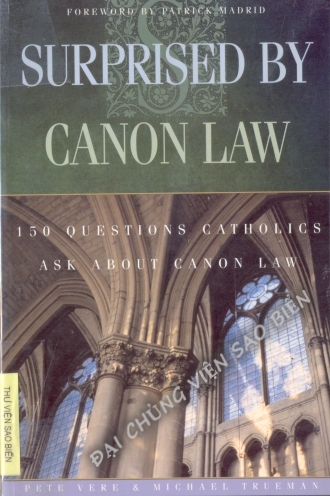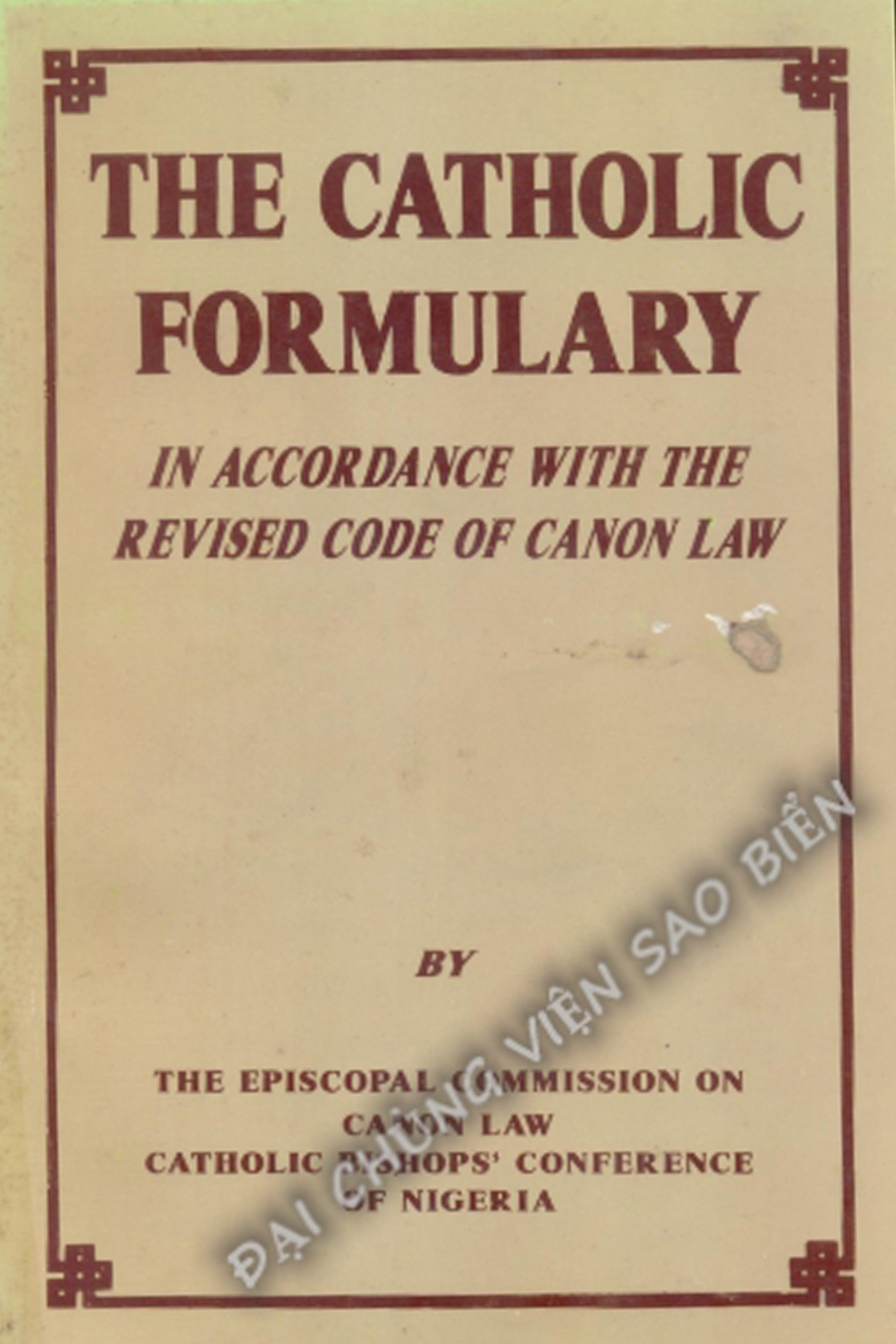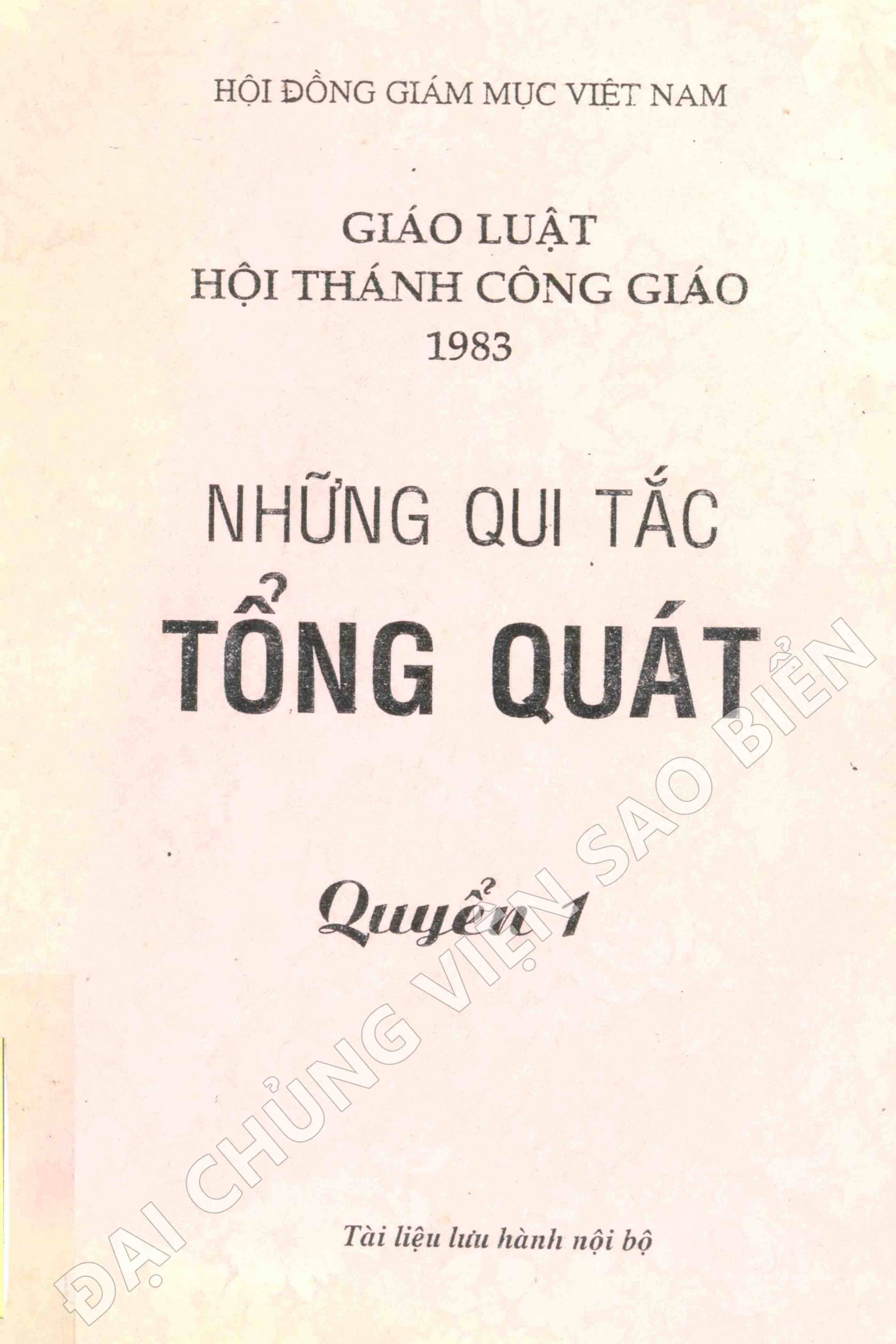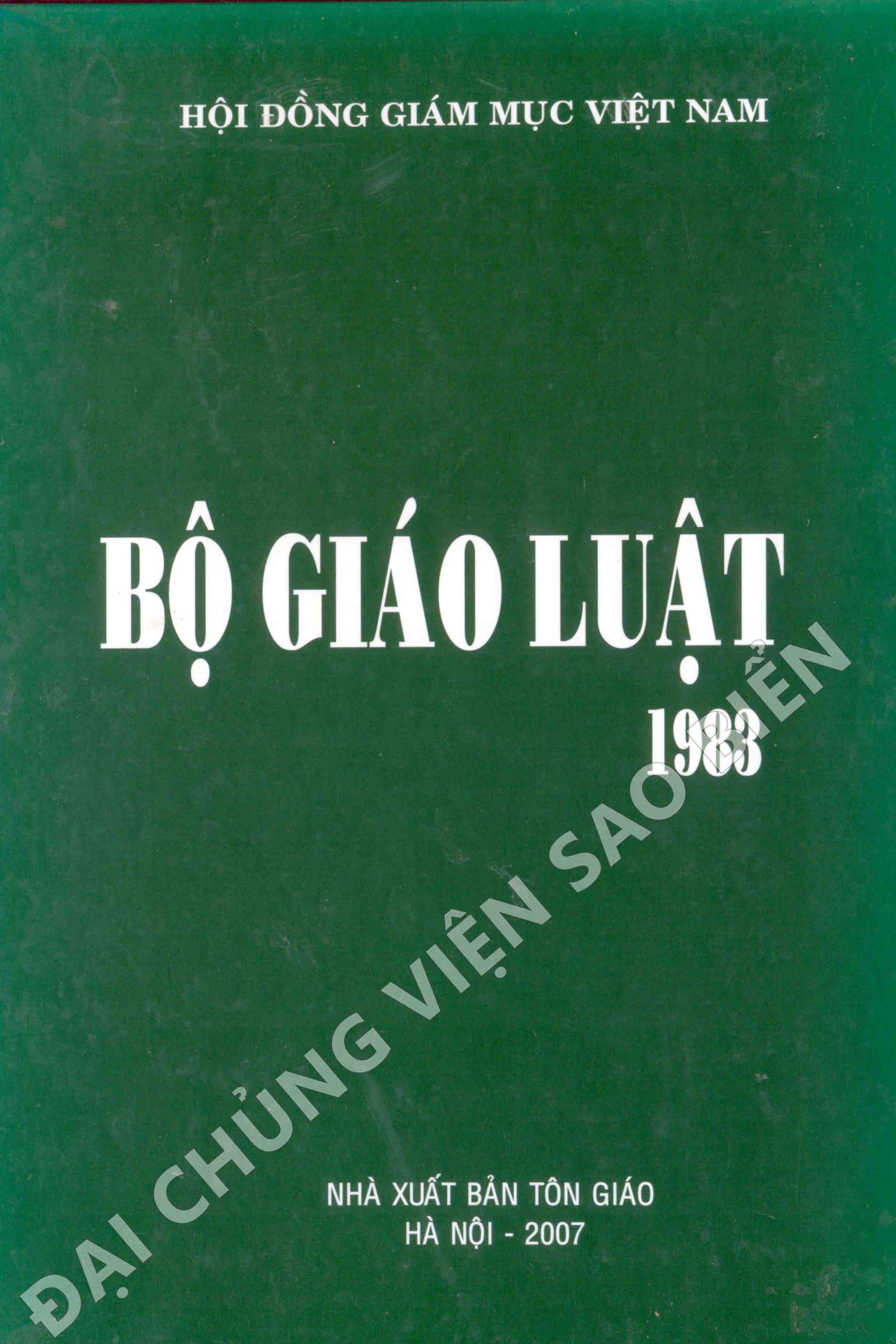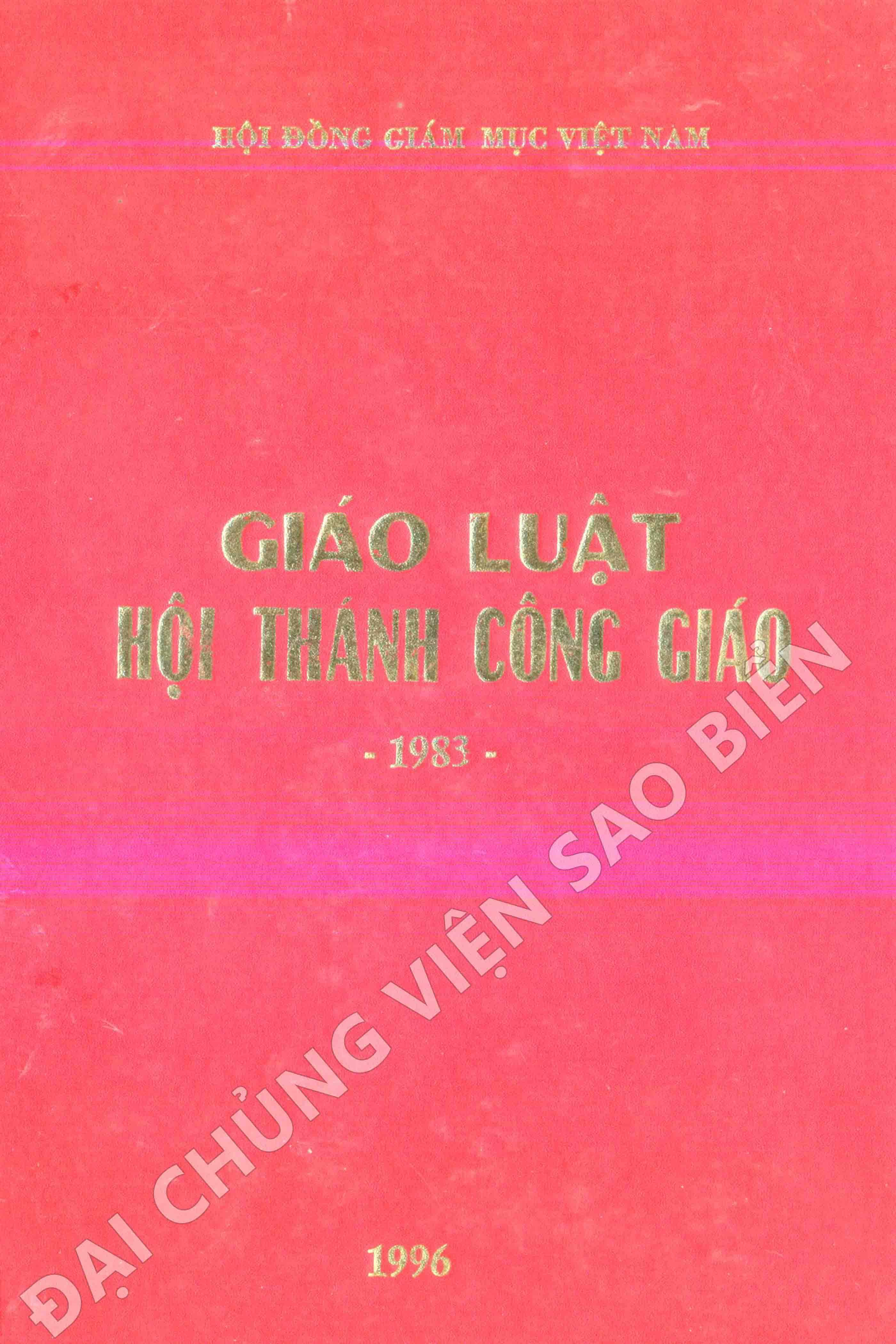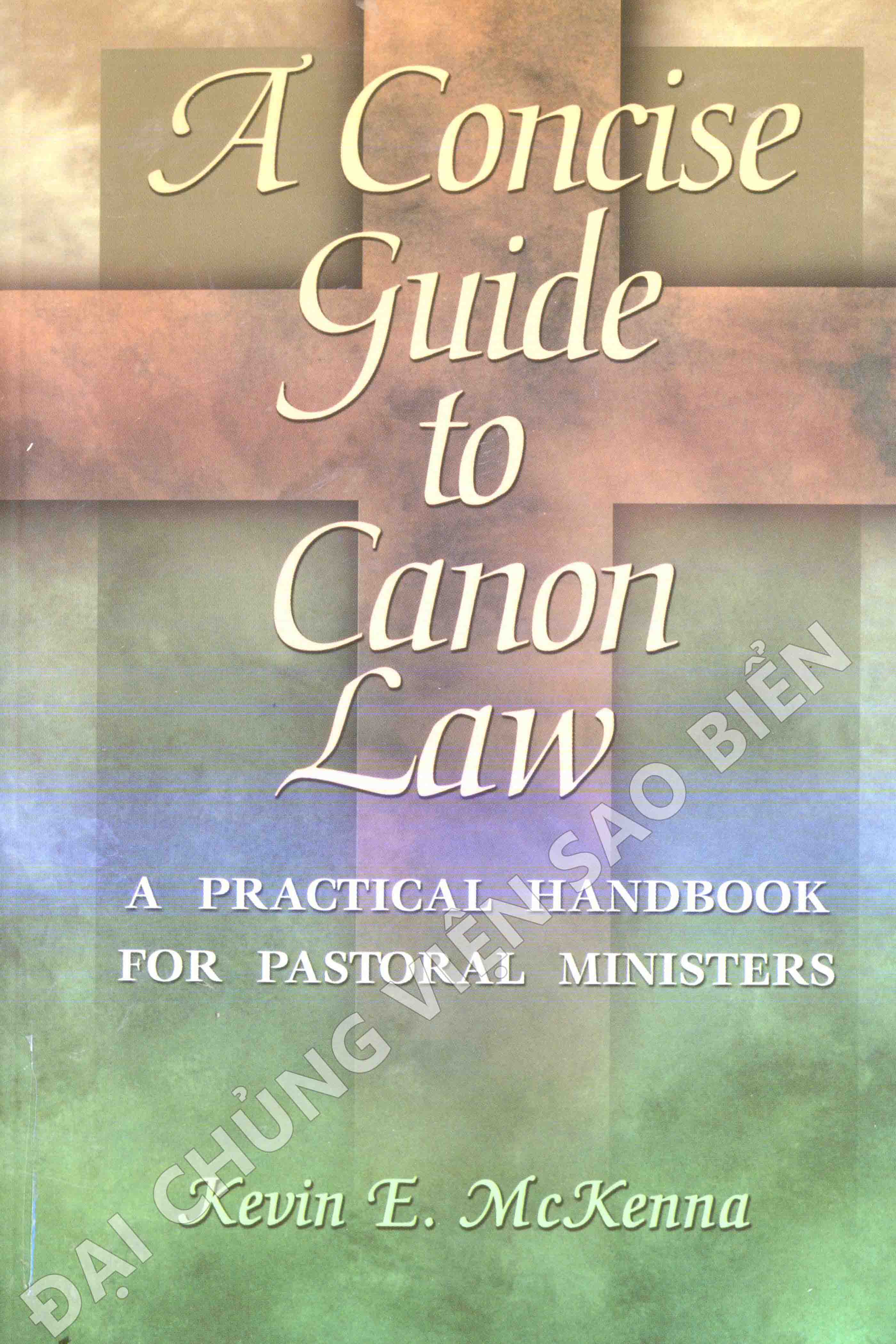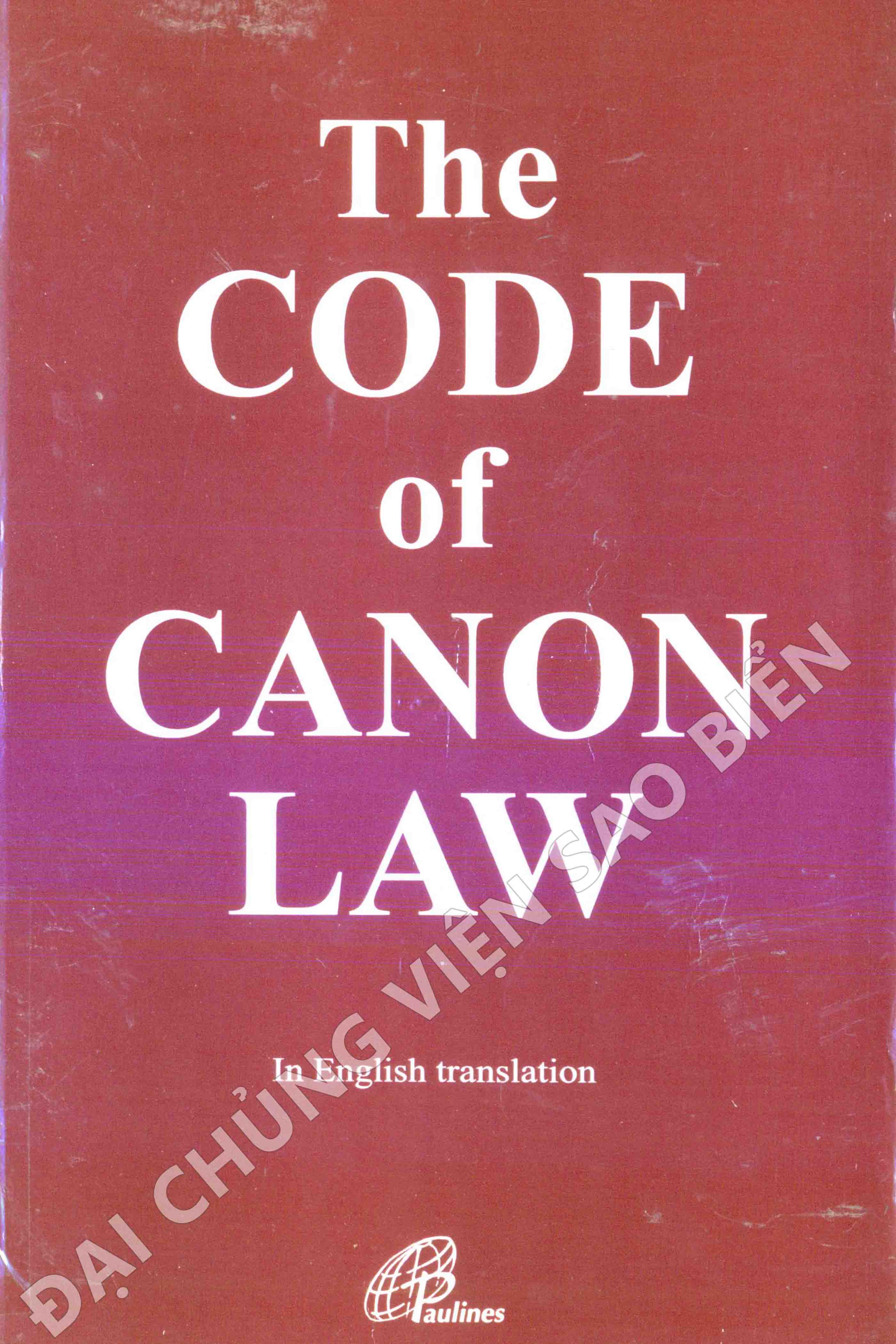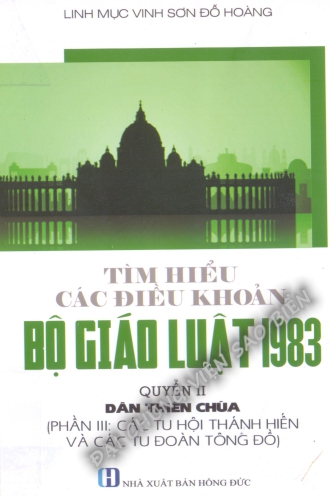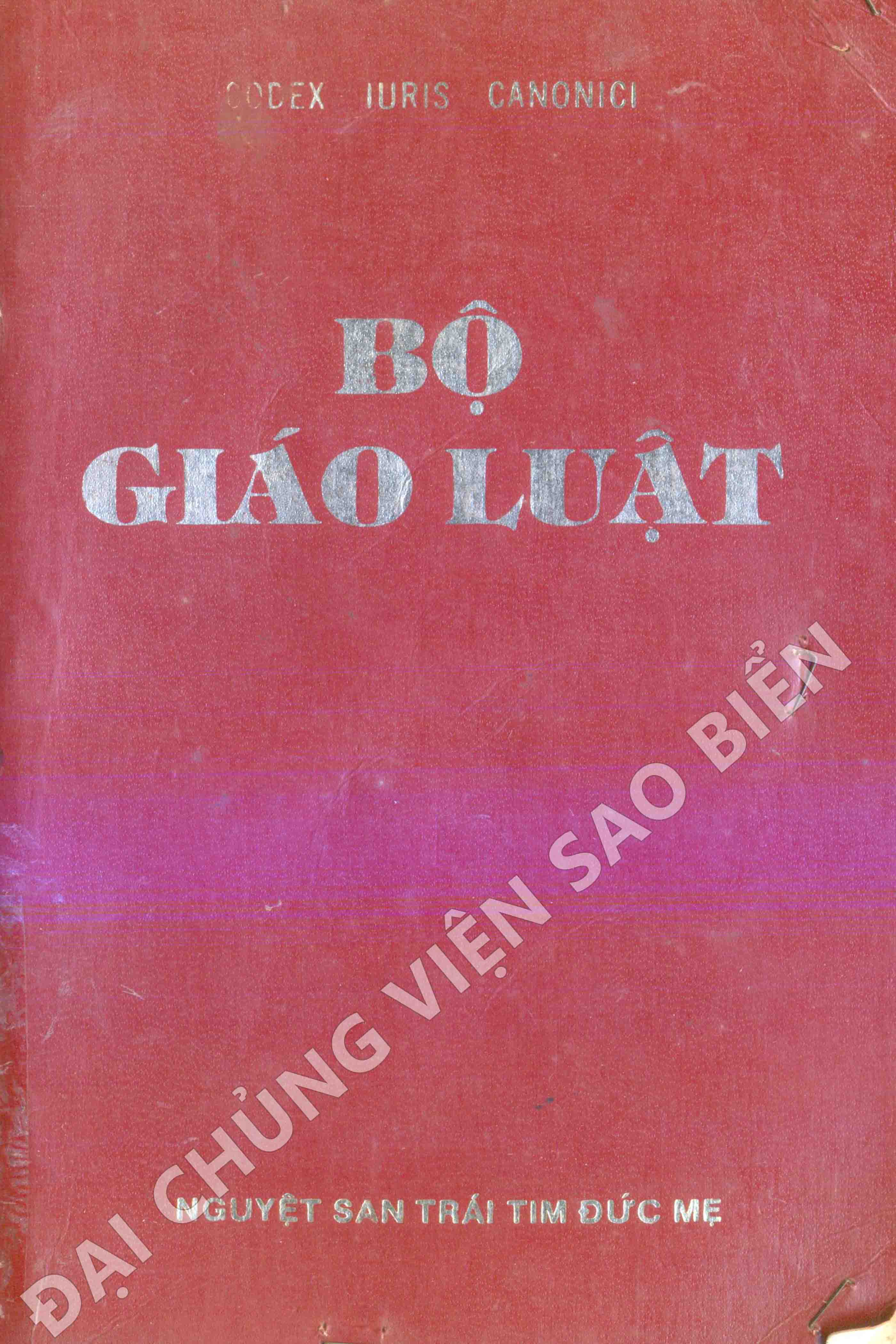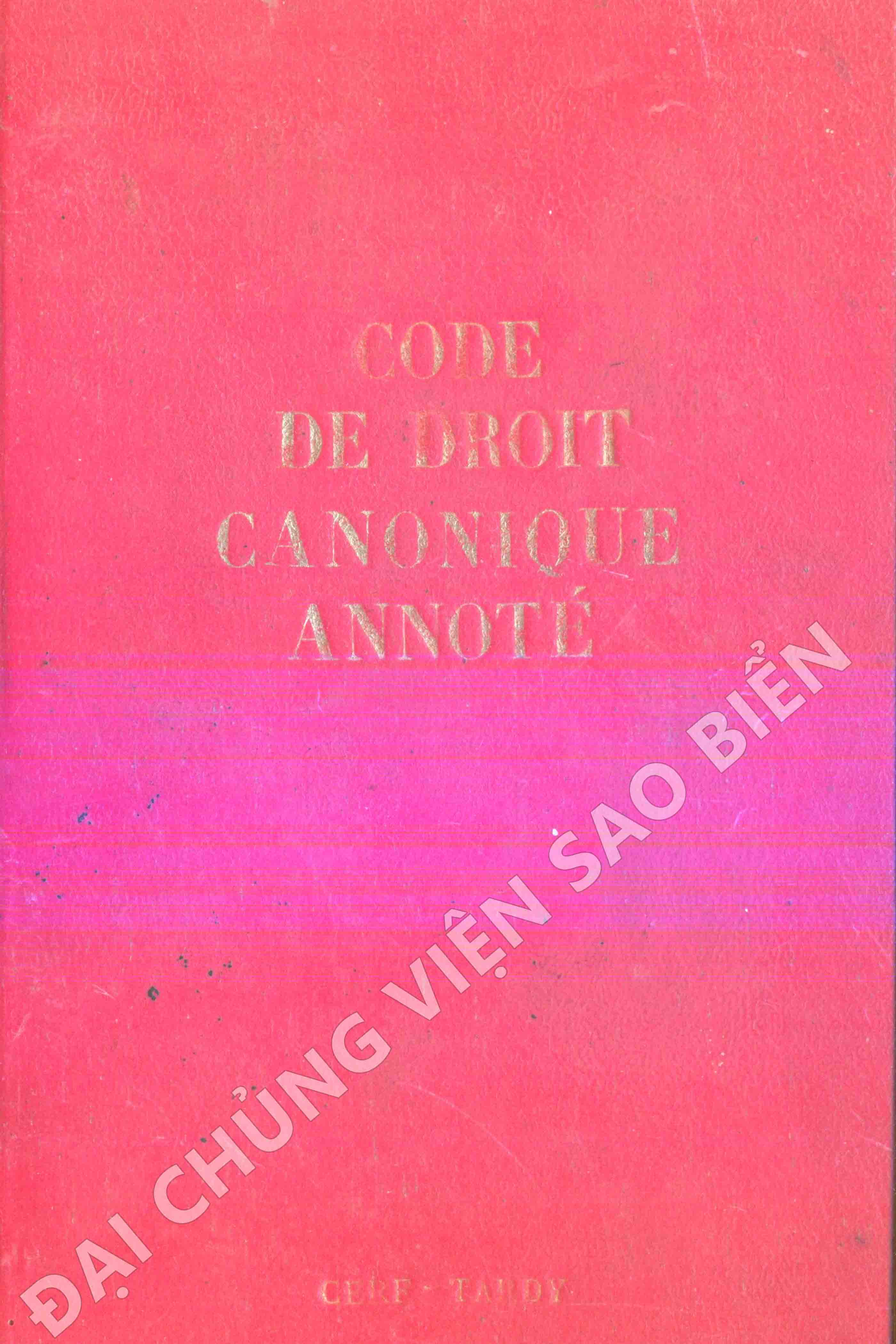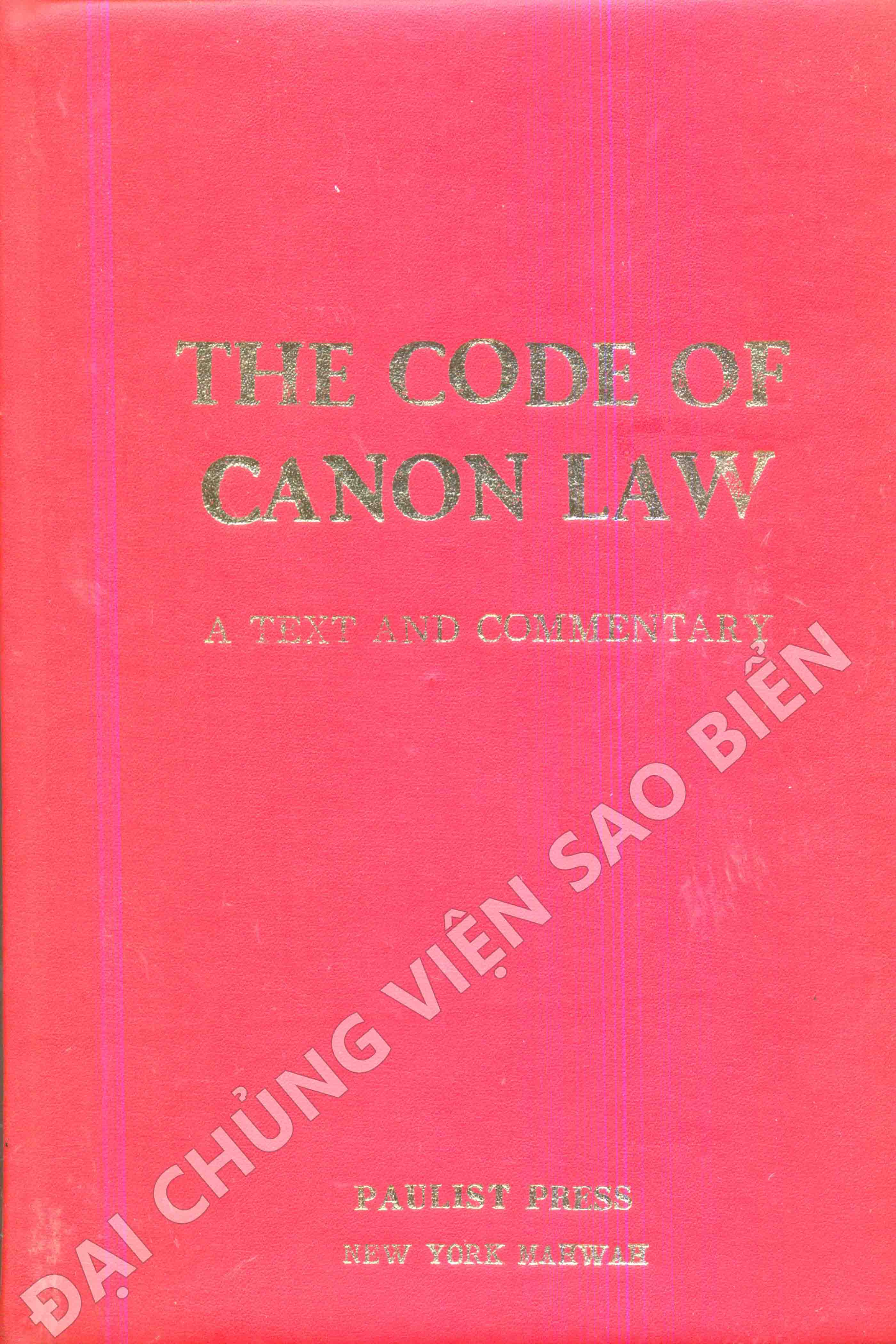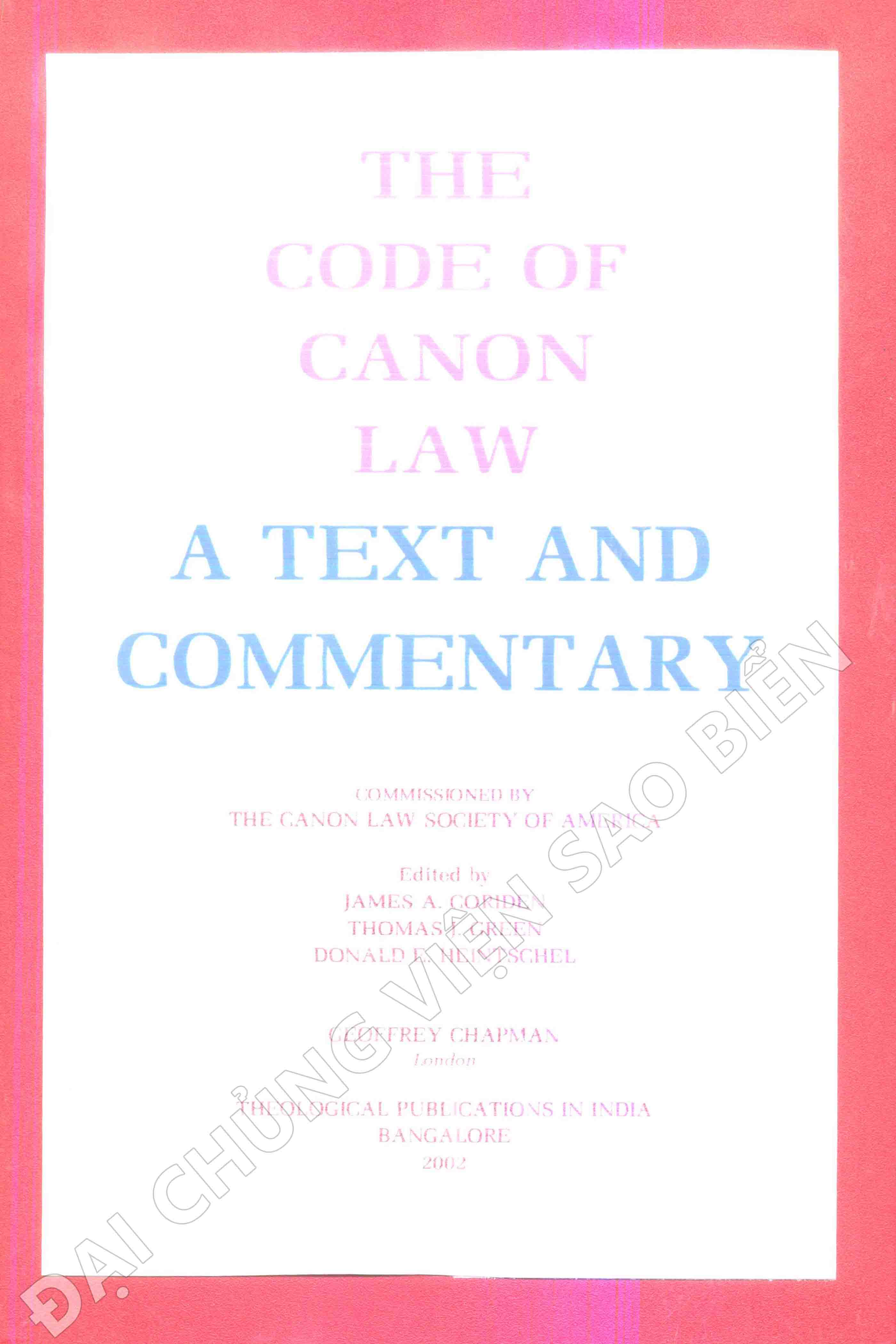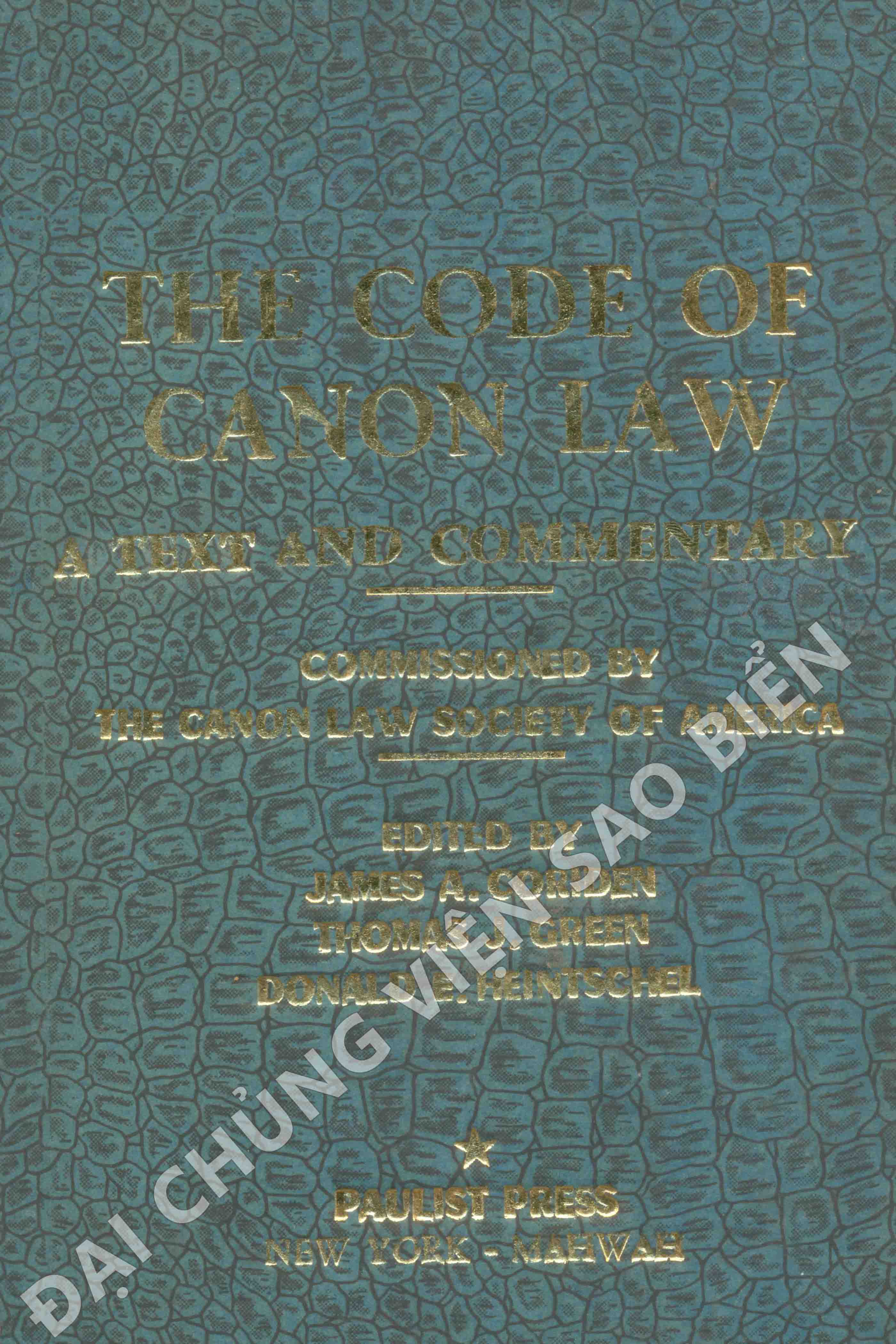| DEDICATION |
|
| PREFACE |
xvii |
| INTRODUCTION |
xix |
| 1. NOVITIATE |
1 |
| 1.Clerifications on the terms " period of mutual acquaintance" and " period of initial formation" |
7 |
| 2. The maximun time for the novitiate and the term " constitutional year" |
7 |
| 3. Transfer of the novitiate house during the novitiate period |
8 |
| 4. The right to make an appeal in case of non-acceptance to the novitiate |
10 |
| 5. Dispensation from the bond of marriage to enter the novitiate |
11 |
| 6. Whether a " midget " / "dwarf" can be accepted to the novitiate |
13 |
| 7. The so-call " canonical inquiry" before religious profession |
14 |
| 8. Dispensation required for a novice mistress for reasons of age and religious profession |
16 |
| 2. RELIGIOUS PROFESSION AND VOWS |
17 |
| 9. Whether the superior who has the right to admit the candidate to profession refers to the same superior who receives the profession |
19 |
| 10. Whether there is a need to renew the profession of nows for six days before the final profession and the possible solution to help prevent a situation where in one is left " without vows" |
19 |
| 11. When the religious has not renewed the vows because the local superior who was delegated to receive the renewal of profession has inadvertently forgotten it |
20 |
| 12. Whether the consent of the provincial council is required to exclude a temporarily professed member from making a subsequent profession |
21 |
| 13. Exclusion from further profession because of sickness |
22 |
| 14. Non-acceptance to the renewal of profession and some monetary offer |
23 |
| 15. Whether religious professions should always be done within the celebration of the Eucharist presided over by the diocesan bishop or his delegate |
25 |
| 16. Sanatio in Rdice for an invalid first profession . |
26 |
| 17. Whether a candidate may be allowed to make perpetual profession after failing in the vow of chastity |
27 |
| 18. Perpetual vows in public associations in view of becoming religious institutes of diocesan right in the future and the minimum requirement of years of temporary profession |
28 |
| 19. The status of religious with perpetual public vows in a public association in itinere |
30 |
| 20. Anticipating the perpetual profession to be able to participate in the provincial chapter |
31 |
| 3. RIGHTS AND OBLIGATIONS OF THE MEMBERS AND THE INSTITUTE |
32 |
| 21. The right and obligation of the institute in the hospitalization of a member who chooses her own physician |
35 |
| 22. A member who asks permission to donate her kidney to a cousin |
35 |
| 23. The practice of signing waivers when members go for further studies and the tendency to tap benefactors for one's financial needs |
36 |
| 24. A religious who demands financial ondependence from the institute |
37 |
| 25. The right of a religious to refuse psychological examination |
38 |
| 26. The case of a problematic member who does not want to return to the community |
39 |
| 27. The case of a local superior and council deciding on the amount of monthly financial aid to the family of a member |
41 |
| 4. ABSENCE FROM THE COMMUNITY |
42 |
| 28. Some observations on the so-called "compassionate leave" |
45 |
| 29. Absence for reason of sickness |
45 |
| 30. The right to vote of members on " leave of absence" |
47 |
| 5. EXCLAUSTRATION OF MEMBERS |
48 |
| 31. Request for an indult of exclaustration based on unclear motivations |
51 |
| 32. Extending the period of exclaustration and the wearing of habit |
51 |
| 33. The competence of the superior General to extend an indult of exclaustration for less than three years |
52 |
| 34. Whether the years spent in exclaustration have bearing in the celebration of one's jubilee |
54 |
| 35. Possible conditions that can be included in the indult of exclaustration |
55 |
| 36. A problematic member whose indult of exclaustration is about to expire |
56 |
| 37. Whether the decree imposing exclaustration also deprives the member to live in the community |
58 |
| 38. The necessary conditions before exclaustration can be impoesed and the issue of "canonical equity" and "charity" |
59 |
| 39. The question of "imputability" in the case of imposed exclaustration |
60 |
| 6. TRANSFER TO ANOTHER INSTITUTE |
61 |
| 40. Whether a new permission is needed from the Superior General of the institute of origin when the transferring religious is admitted to perpetual profession in the new institute |
63 |
| 41. Financial support during the probationary period in the case of transfer to another institute |
63 |
| 42. The role of the diocesan Bishop with regard to transfer to a society of apostolic life of a religious belonging to a congregation of diocesan right whose principal house is located in his diocese |
64 |
| 43. The case of a perpetually professed member of a conregation of diocesan right who wants to "transfer" to a "pious association" |
65 |
| 44. The case of a perpetually professed member of a congregation of pontifical right who desires to transfer to a "pious association" |
66 |
| 45. The obligation of the institute to accept back a member whose transfer has not been completed |
67 |
| 7. INDULT OF DEPATURE AND DISPENSATION OF VOWS |
68 |
| 46. Whether the petition letter for an indult of departure is addressed to the Holy Father or to the Cardinal Prefect |
69 |
| 47. Whether the petition letter for an indult of departure is presented to the Superior General or to the diocesan Bishop for a member of an institute of diocesan right |
69 |
| 48. Whether a letter from a seminarian expressing his intent is enough when he decides to leave the seminary of a religious institute |
70 |
| 49. Whether the juridic effects of the indult of departure take place upon the notification of the rescript or when the original copy of the indult has been received and accepted |
71 |
| 50. The case of a petitioner who wants that the rescript be examined by her canonist |
72 |
| 8. DISMISSAL FROM THE INSTITUTE |
74 |
| 51. Possible additional grounds for dismissal for the temporarily professed |
75 |
| 52. Incaccuracies in the canonical warnings |
75 |
| 53. When the religious to be dismissed cannot be found or has refused to acknowledge the canonical warnings |
76 |
| 54. The participation of the provincial council in the dismissal procedure |
77 |
| 55. Further clarification on the role of the regional superior and superior general in the dismissal process |
78 |
| 56. Clarifications on the 15 days interval in-between canonical warnings |
78 |
| 57. Dismissal of a religious after contracting civil marriage |
79 |
| 58. Automatic dismissal and latae sententiae interdict for attempted marriage |
80 |
| 59. Whether a member of the general council can sign the decree of dismissal in the absence of the Superior General |
81 |
| 60. Facultative dismissal of a religious who is illegally absent and does not want to return to the community |
82 |
| 61. Whether the notification of the decree is made before or after the confirmation from the Holy See |
83 |
| 62. The notification of the decree of dismissal to a religious whose address is not known |
85 |
| 63. Hierarchical recourse and payment of expenses |
86 |
| 9. READMISSION TO THE INSTITUTE |
89 |
| 64. The procedure to follow in the readmission of one who has lawfully left the institute |
89 |
| 65. The case of a religious who has lawfully left the institute and is willing to take up "the burden of repeating the novitiate" in his readmission |
90 |
| 10. RECEPTION OF MINISTRIES AND SACRED ORDERS AND SECULARIZATION OF RELIGIOUS CLERICS |
93 |
| 66. Delegation of a local Superior in admission of ministries of lectorate and acolytate in preparation for the diaconate |
93 |
| 67. The dimissiorial letters for a candidate for diaconal ordination belonging to a clerical public association in view of being erected as an institute of diocesan right |
94 |
| 68. The figure of the so-called "Bishop-protector" in the case of a candidate for ordination belonging to a "pious association" |
95 |
| 69. A case of a Bishop who does not want to ordain a member of a public assiociation in itinere |
96 |
| 70. The case of a an uncooperative provincial in the member's application for secularization |
98 |
| 71. Whether the provincial has the right to prevent a religious priest of his province from asking for the indult of secularization |
99 |
| 72. Whether a diocesan Bishop can incardinate a religious cleric who has been dismissed from the institute |
100 |
| 73. A member of a clerical public association in view of becoming an institute of diocesan right who wants to leave the community and requests to be incardinated in another diocese |
101 |
| 11. GOVERNANCE AND AUTONOMY IN RELIGIOUS INSTITUTES |
103 |
| 74. The use of the term 'Sisters in charge,' instead of 'local Superiors' and their qualifications |
103 |
| 75. Necessary dispensation so that a local Superior can be re-appointed for the fourth consecutive term |
105 |
| 76. Apparent conflict in the term of office of the Superior General in the constitutions |
106 |
| 77. Transfer of the principal house of an institute of pontifical right |
107 |
| 78. Tranfer of the principal house of an institute of diocesan right |
108 |
| 79. Whether a member of the council can give her consent whenever she is not physically present |
109 |
| 80. Whether a general councilor can be absent for a year for further studies |
110 |
| 81. With regard to an enlarged general council |
111 |
| 82. The establishment of a province in an institute of diocesan right |
112 |
| 83. The case of an Archbishop meddling in the profession of vows of religious belonging to an instittute of pontifical right |
113 |
| 84. Whether the diocesan Bishop has the right and obligation to extend his visitation to the houses and members of a religious institute pf pontifical right in the diocese |
115 |
| 12. CHAPTERS AND ELECTIONS |
117 |
| 85. Whether sick members can be elected as delegates to the general chapter |
117 |
| 86. An issue concerning the exact number of elected delegates to the provincial chapter in view of the reduced number of ex officio members |
118 |
| 87. Postponement of a general chapter and the necessary preparations |
120 |
| 88. The criterion to determine 'seniority' during an election in a religious institute |
121 |
| 89. whether it is opportune to dispense the law allowing the election of temporarily professed members to become delegates to the general chapter |
122 |
| 90. The role of a sick Superior Genneral in a general chapter |
123 |
| 91. "Chapter of the whole" |
124 |
| 13. ALIENATIONS |
127 |
| 92. Alienations á among the things to be included in the economic report tho the Holy See |
127 |
| 93. Documents to be sent to the Holy See for the granting of permission for alienation |
128 |
| 94. Whether the opinion of the Bishop is necessary in an alienation of a property belonging to an institute of pontifical right |
129 |
| 95. The role of the diocesan Bishop and the Holy See in an alienation of a property belonging to an institute of diocesan right |
130 |
| 14. REVISION OF THE CONSTITUTIONS |
131 |
| 96. Words such as, 'must', 'should', 'may', etc. are to be avoided in the constitutions |
131 |
| 97. Whether it is fine to add the word 'normally' to an article regarding the number of general councilors |
132 |
| 98. The order in the presentation of the three evangelical counsels in the proper law and the choice of the term 'virginity' over 'chastity' |
133 |
| 99. The recommended format in which the changes made to the constitutions is to be presented to the Holy See for approval |
134 |
| 100. Whether the provincial chapter can create a post-capitular commission for the completion of the provincial statutes |
135 |
| 15. MORE QUESTIONS REGARDING PUBLIC ASSOCIATIONS IN VIEW OF BECOMING INSTITUTES OF DIOCESAN RIGHT IN THE FUTURE |
137 |
| 101. Whether all Bishops can erect an institute of diocesan right after consulting the Holy See and whether the latter always refers to the Congregation for Institute of Consecrated Life societies of Apostolic Life? |
137 |
| 102. The case of an unwelcoming diocesan Bishop to a public association in itinere and the destination of the temporal goods in an unlikely event of suppression |
138 |
| 103. Further clarification on the role of the diocesan Bishop in a public association in itinere and the use of habit |
140 |
| 104. Whether a diocesan administrator can suppress a public association in itinere |
142 |
| 105. Separation of members belonging to public associations in itinere |
143 |
| APPENDICES |
|
| Appendix 1 |
|
| The Office of Provincial Superiors Accoeding to the New Code of Canon Law in the Light of the Tria Munera of the Church |
145 |
| Appendix 2 |
|
| Ministerial Public Juridic Persons: Blessings and Challenges |
181 |
